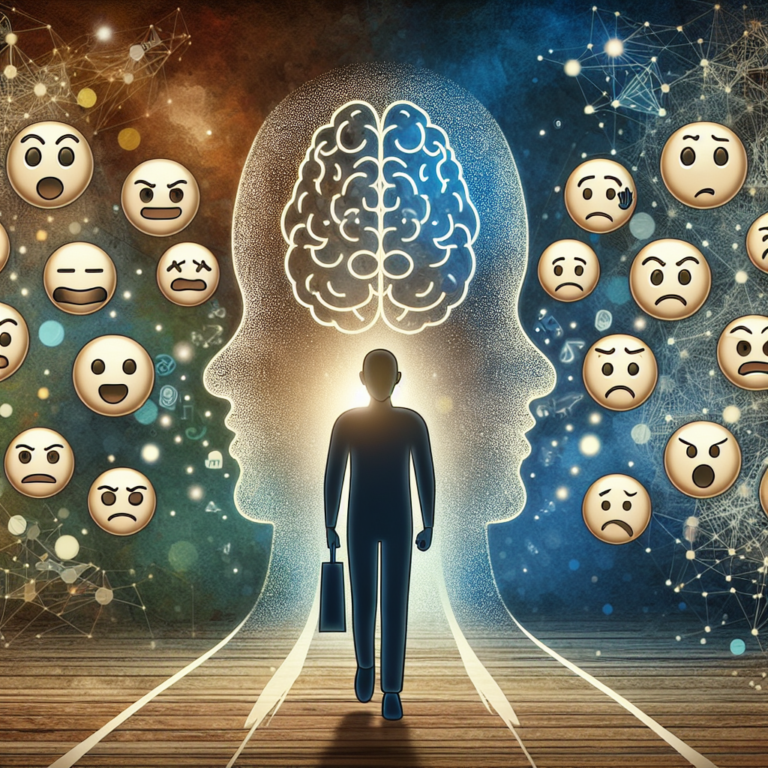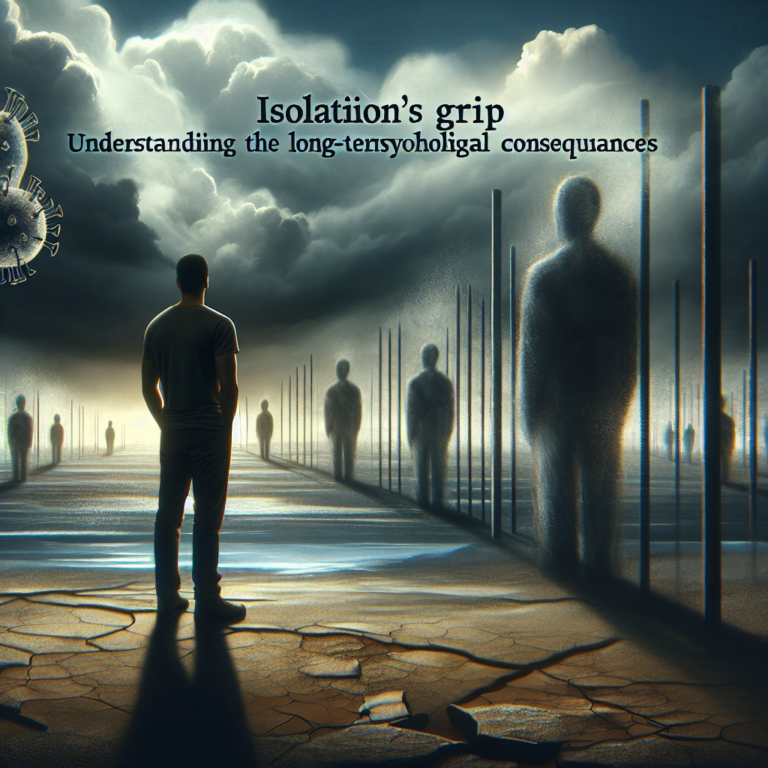
From Cradle to Grave: The Essential Psychological Stages of Human Development Explained
Human development is a journey marked by distinct stages, each carrying its own psychological challenges and triumphs. Understanding these stages is crucial not just for psychologists, but for anyone invested in personal growth, education, or even parenting. This article, "From Cradle to Grave: The Essential Psychological Stages of Human Development Explained," will traverse this intricate landscape, offering insights that can help inform, inspire, and enlighten.
Introduction
Imagine witnessing the life of an individual, observing transformations from an innocent infant to a wise elder. This remarkable transition is framed by mental and emotional growth at each phase of life. Though our experiences may differ, the psychological stages remain a universal thread connecting us all. Comprehending these stages can foster a greater empathy and understanding for ourselves and others. Let’s dive into the intricate tapestry of human life—from cradle to grave.
Table of Contents
Infancy (0-2 years)
- Key Developments
- Case Study: The Importance of Secure Attachment
Early Childhood (2-6 years)
- Cognitive and Emotional Growth
- Case Study: Learning Through Play
Middle Childhood (6-12 years)
- Development of Self-Concept
- Case Study: Navigating School Dynamics
Adolescence (12-18 years)
- Identity Formation and Challenges
- Case Study: The Role of Peer Influence
Early Adulthood (18-40 years)
- Establishing Intimacy and Career Goals
- Case Study: Balancing Work and Relationships
Middle Adulthood (40-65 years)
- Reflection and Legacy
- Case Study: Midlife Crisis and Renewal
Late Adulthood (65+ years)
- Integrating Life Experiences
- Case Study: The Pursuit of Meaning
- Conclusion
- FAQs
1. Infancy (0-2 years)
Key Developments
During the first two years of life, infants experience rapid growth, both physically and psychologically. The cornerstone of this stage is attachment—a secure bond formed between the child and caregivers. This attachment sets the stage for emotional stability and relationship building in later years.
Case Study: The Importance of Secure Attachment
A 2010 study published in the Journal of Child Psychology found that infants with secure attachment tend to develop superior social skills and emotional regulation. For example, Claire, a 3-year-old with secure attachment to her mother, exhibited well-managed emotions when playing with peers, highlighting how early experiences shape emotional intelligence.
2. Early Childhood (2-6 years)
Cognitive and Emotional Growth
Early childhood is often defined by imaginative play and learning. Children begin to understand their emotions and those of others, fostering empathy and social skills. Their world expands beyond the family unit, introducing friends and educators.
Case Study: Learning Through Play
The "Building Blocks" program, which emphasizes play-based learning, showcases the significance of this stage. Children involved in the program demonstrated improved cognitive abilities and stronger social connections by engaging in collaborative play. One group of preschoolers showed a 30% increase in problem-solving skills due to structured play sessions.
3. Middle Childhood (6-12 years)
Development of Self-Concept
As children progress into middle childhood, they start to form a sense of self. They become more aware of their strengths and weaknesses, essential for building self-esteem. This period can be transformative for social skills, as children navigates complex relationships in school and extracurricular settings.
Case Study: Navigating School Dynamics
A longitudinal study on a diverse group of children followed their interactions through middle childhood. Results indicated that kids with higher self-esteem were 40% more likely to excel academically and socially than their peers with lower self-esteem. For instance, Jason, who consistently received positive reinforcement from teachers, thrived in both academics and friendships.
4. Adolescence (12-18 years)
Identity Formation and Challenges
Adolescence is often a tumultuous period marked by identity exploration and peer pressure. Individuals strive to understand their place in the world while going through physical and emotional changes.
Case Study: The Role of Peer Influence
A 2018 survey highlighted how adolescents are influenced by peer groups. Those with strong, supportive friend networks reported better emotional health than those who faced bullying or isolation. Samantha, an adolescent who joined a supportive club at school, found belonging and increased self-esteem, showcasing the powerful impact peers can have during this stage.
5. Early Adulthood (18-40 years)
Establishing Intimacy and Career Goals
This period is characterized by the pursuit of personal goals, whether related to careers, education, or intimate relationships. The choices made during early adulthood can shape the trajectory of one’s life significantly.
Case Study: Balancing Work and Relationships
Research from the University of California supports the notion that individuals who effectively balance their careers and personal lives report higher satisfaction rates. For example, Sam, a recent college graduate, found success in his career by prioritizing time with friends and family, demonstrating that work-life balance fosters overall well-being.
6. Middle Adulthood (40-65 years)
Reflection and Legacy
As individuals enter middle adulthood, they often experience a "midlife crisis," prompting reflection on accomplishments and life goals. This period can lead to profound changes, including career shifts and a renewed focus on personal relationships.
Case Study: Midlife Crisis and Renewal
A study exploring midlife transitions found that many individuals report feeling unfulfilled in their careers. Those who engaged in self-reflection and sought new challenges—like Maria, who started painting and opened a small gallery—often experienced revitalization and purpose. The findings emphasize the importance of adaptability and exploration during this stage.
7. Late Adulthood (65+ years)
Integrating Life Experiences
In late adulthood, individuals reflect on their lives, seeking meaning and fulfillment. This stage can be characterized by a fuller acceptance of one’s life journey, bringing about wisdom and a desire to impart knowledge to future generations.
Case Study: The Pursuit of Meaning
A study of older adults revealed that those who engaged in storytelling and shared their experiences with younger generations felt a stronger sense of purpose. For example, George, a retired teacher, found fulfillment by mentoring local youth, proving that sharing wisdom can positively impact both the giver and receiver.
Conclusion
Understanding the psychological stages of human development is essential for fostering emotional and social well-being at every stage of life. From infancy to late adulthood, these stages serve as a framework for personal growth and community connection. Recognizing where we stand in this continuum can provide powerful insights into our behaviors, relationships, and motivations.
As you navigate your own journey—from cradle to grave—remember that each stage offers unique lessons and opportunities for growth. Embrace the journey, foster connections, and continue to learn.
FAQs
1. What are the psychological stages of human development?
The psychological stages include infancy, early childhood, middle childhood, adolescence, early adulthood, middle adulthood, and late adulthood. Each stage has specific emotional and psychological challenges.
2. How does attachment in infancy affect later life?
Secure attachment in infancy can lead to better emotional regulation and social skills in later stages, impacting relationships and self-esteem throughout life.
3. Why is understanding these stages important?
Understanding these stages fosters empathy for ourselves and others, promoting healthier interactions and personal growth at every developmental phase.
4. Can people skip certain stages in their development?
While each stage serves a purpose, individuals may experience phases differently due to unique life circumstances. However, unresolved issues from one stage can impact future development.
5. How can I support someone’s development at different stages?
Being present, offering support, encouraging open communication, and fostering a safe environment are all ways to uplift individuals at different developmental stages.
By exploring "From Cradle to Grave: The Essential Psychological Stages of Human Development Explained," you now have the tools to navigate each phase thoughtfully and compassionately, enriching your understanding of yourself and those around you. Embrace the ride!

















